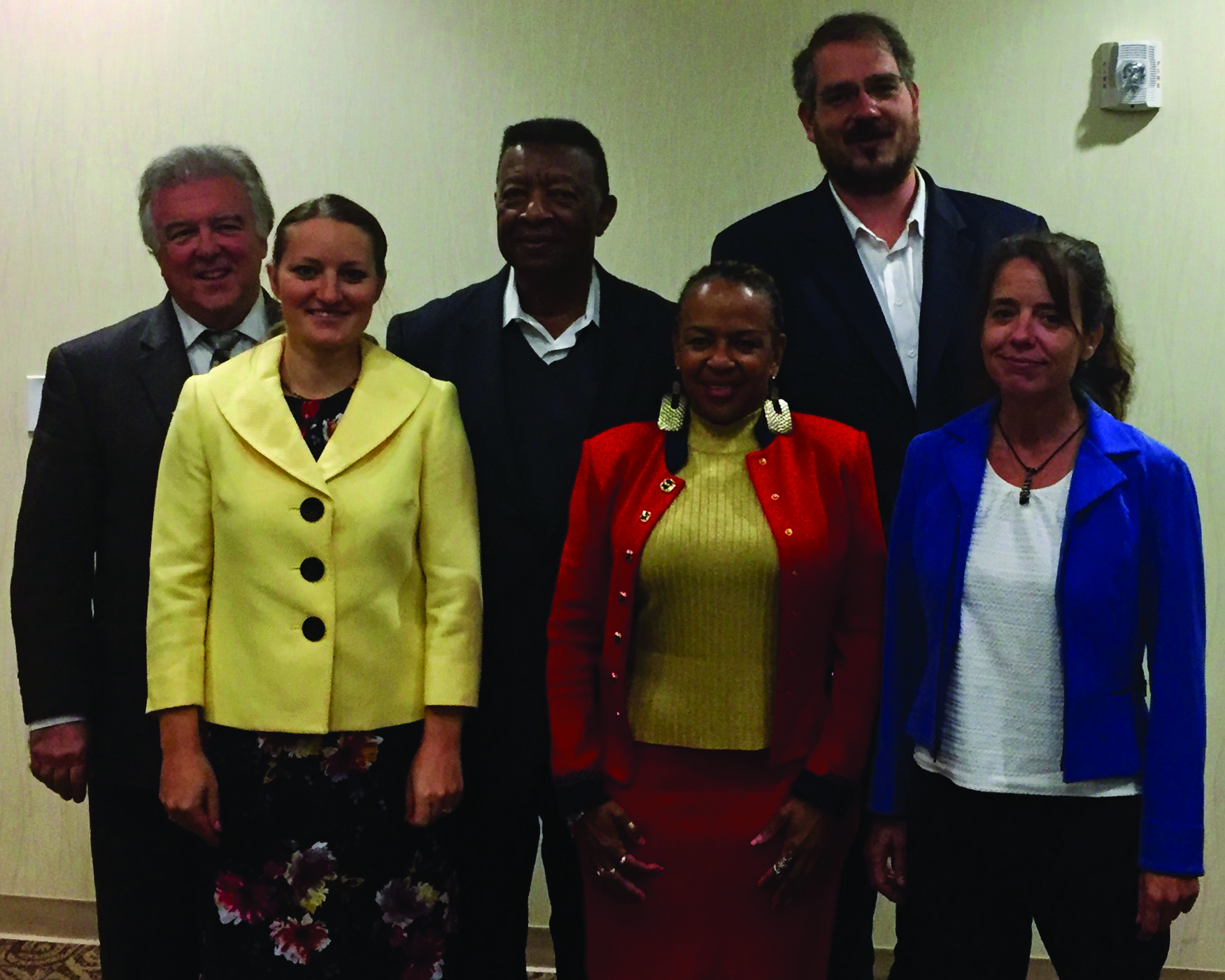
Daylon Bonner, Staff Writer
Thursday, Nov. 16, a panel in the Student Union Ballroom garnered a sizeable audience to discuss and evaluate the tenure of the current president. The panel consisted of academic specialists in the fields of history, criminal justice and political science, from both Savannah State and Armstrong. The panelists from Armstrong consisted of Dr. Lara Wessel, Dr. Kevin Jennings and Dr. Maxine Bryant. The panelists from Savannah State consisted of Mr. Meldon Hollis Jr., Dr. Bruce Mallard and Dr. Inna Adams.
Dr. Mallard discussed the competence qualifications associated with Donald Trump’s presidency. Specifically, he questions whether the President has handled the duties associated with the office not specifically outlined by the Constitution. To paraphrase Dr. Mallard, “We expect our President to come out in times of personal tragedy… to make it better not worse.”
Dr. Wessel evaluated the president from a press perspective. Based on media coverage, both before and during his time in office. The president has been shown to be less than agreeable when his patience has been tested. He has also not shied away from making his discontentment known on social media. As expected, his 140 characters are not always glowing reviews of the political process. The president has an unprecedented number of ways to relay information to United States citizens, to other branches of government and to various world leaders.
Dr. Wessel would go on to add that presidents with less than ideal temperaments are not a new Phenomenon: she offered Thomas Jefferson, Andrew Jackson, and Lyndon B. Johnson as examples of other presidents with ill-tempered characters.
According to Dr. Wessel, the mannerisms seen in the oval office have not been ideal for the administration.
“The [type of] rhetoric seen in [—from] the presidency has been amplified … We look to our leaders to set a tone.”
While social media has given the president nearly unlimited avenues to communicate with his constituents, his comments on the internet, in conjunction with his in-person mannerisms, have not translated into effective leadership thus far.
Dr. Inna Adams delved into interactions between the president and other world leaders. She would bring up how he is attempting to facilitate cohesion with China while having an increasingly hostile discussion with North Korea.
While all panelists were critical of the President, some had reserved even more disdain behind their words. These three panelists were Mr. Hollis, Dr. Jennings and Dr. Bryant.
Mr. Hollis spoke in a particularly uneasy tone concerning the president. What appeared to unsettle him the most was the fact that the current administration has not fostered much cohesion among the various groups in America. If anything the gap between them may have widened.
To quote the professor directly, “Most people [who] are elect by a minority have two choices: expand the base with the intent to govern the majority; or work exacerbating the fractures in order to keep people at each other’s throats.”
Mr. Hollis believes, based on what he has observed, the president has chosen the latter route to govern his citizens. Unfortunately, there is some basis to his claim which can be observed in less than stellar race and gender relations and the looming presence of xenophobia. While the president alone is obviously not completely responsible for the national divide, it is not unreasonably say he has not contributed to in some way.
Building off what Mr. Hollis presented, Dr. Bryant homed in on the rhetoric surrounding the presidency and how it has used as an intimidation tactic. Of note, she took issue with the rhetoric surrounding crime in America. Crime is still an issue in the United States. No one is disputing that claim. However, the words spoken and tone in which there are spoken have led to unnecessary policies surrounding crime, especially offenses involving illegal drugs. Dr. Bryant asserts that the continued emphasis on removing illegal substances has continued since they were first ostracized by the Nixon and Reagan administrations. The president has run on a platform that sought to decrease crime. Regardless of opinions for or against his stance, the president has made an effort to alleviate the problem of drug related crime.
That being said, the effort made has been more detrimental than helpful. The executive orders he has created will not fix the root of the problem. He has also hired people to key positions of the executive branch who support a for-profit prison system, both in the form of mandatory minimums and private prisons. Dr. Bryant sees this as a potentially terrible route to fixing the problems of illegal substances.
The final panelists, Dr. Jennings, would present some of the legal issues stemming from the current administration. For one, the president has a long history of legal battles. The bigger issue concerned whether he may have violated the emolument clause in the Constitution which prohibits the president extravagant gifts and the like from foreign states without Congressional consent. His most impassioned point came when he discussed the validity of political assertions. He proposed to link every social media account to verified sources on political discourse.
After each panelist presented their evaluation of the president, the forum was opened to questions from the audience. Topics included Confederacy monuments, Russia, Net Neutrality and private prisons. Aside from the points they emphasized individually, the panelists all sought to communicate the importance of finding valid political information for oneself.







Ivan Cohen • Dec 29, 2017 at 1:33 pm
Another person ran for the presidency on a law and order platform, Richard M. Nixon. It is well known how he played himself with the Watergate matter. The current resident of 1600 Pennsylvania will meet his Waterloo. He just can’t help himself.